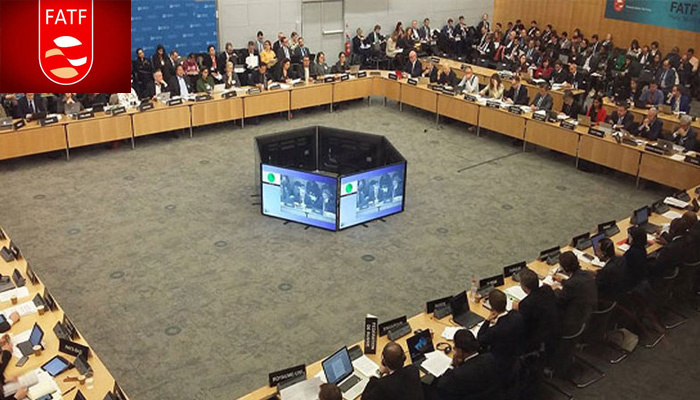Another Iran-US Faceoff, This Time on FATF

While the FATF weekly meeting has kicked off in Paris from October 14, news has it that Iran’s foes at this summit are attempting to convince other countries that Iran has failed to fulfill the demands of this institution, that counter-measures should be taken against Iran and that it should not be removed from FATF blacklist.
Audition of Iran's progress in joining the FATF is one of the main agendas of this one-week meeting. More than 800 officials representing 204 countries and international organizations, including the IMF, the UN and the World Bank, are attending the summit.
So far, the Iranian government has submitted four drafts on: accession to Palermo Convention, Combating the Financing of Terrorism (CFT), Amendment to the Anti-Money Laundering Law and Amendment to Fighting Terrorism Financing Law. Among these bills, Amendment to Fighting Terrorism Financing Law has become enacted, and recently Iran’s accession to FATF has also been approved by the Parliament and sent to the Guardian Council for approval. Also, the bill for Iran's accession to the Convention against Transnational Organized Crime (Palermo) and Amendment to the Anti-Money Laundering Law have been approved by Parliament, but have not yet been approved.
David Lewis, the Secretary of Executive Affairs of FATF David Lewis, has spoken to the BBC on Iran’s accession to FATF. In response to whether Iran's removal from the FATF blacklist helped the country maintain its relations with other countries Lewis responded that regardless of other countries' positions on sanctions against Iran, the result of Iran's cooperation with the FATF would be positive.
Lewis added that Iran can certainly create conditions favorable to enter trade with other countries of the world and show they are safe to invest. However, he added that FATF could not force any country to trade with other countries, but could provide an assessment of the situation in the countries to show whether or not they are safe for investment and business. Secretary of Executive Affairs of FATF also recalled that it would be the UN, but not FATF that decided which groups were terrorists.
Speaking to the media on Monday, Bahram Ghassemi, spokesman for the Iran’s foreign ministry, said that: "Accession to FATF is in line with the interests of Iran and has many advantages. Considering our domestic rules, its implementation would be beneficial. "
Meanwhile, informed sources have told Iranian Diplomacy that the United States, Saudi Arabia, and Israel are working hard to convince other countries to accept their narrative: that after two terms of suspension from black list, Iran has only ratified one from the required four bills, and has undermined the credibility of FATF with long delays in its actions. They are trying to imply that this is detrimental to the authority and prestige of this international institution, so if counter-measures against Iran are not held at this summit, it will have a bad message for the international community.
An important point is Saudi Arabia's efforts in this regard. Saudi Arabia, which has been criticized by the FATF itself for neglecting its recommendations and its permanent membership has not been accepted by the FATF, expects the re-establishment of tentative measures against Iran's banking sector, to gain traction and overshadow the Khashoggi assassination case.
Of course, on the opposite side, Russia, European countries, China and India are backing Iran and support removal of its name from the FATF blacklist. In contrast to Saudi Arabia, the United States and Israel, they are negotiating with other countries and institutions in favor of Iran.

